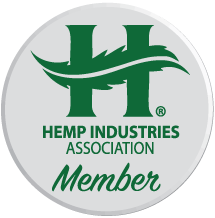To the surprise of many, Utah WASN’T the last state to allow marijuana — voters approved a medical marijuana initiative in 2018. The Beehive State was often seen as the ultimate anti-drug state, since many of its generally conservative citizens abstain from not just from alcohol and tobacco but coffee or caffeinated cola drinks. It was also one of the first states to make cannabis illegal in the early 20th century.
A big part of this perception is because more than 60 percent of its 3.1 million citizens – including 90 percent of the Legislature – are members of the Church of Jesus Christ of Latter-day Saints. The faith includes dogma that encourages self-discipline and positive character by encouraging members to avoid any sort of stimulants, legal or otherwise.
At the same time, however, the LDS faith also encourages compassion and taking care of one’s neighbors, a virtue which could have had a role in the success of the Proposition 2. The successful Medical Cannabis Act allowed patients with certain qualifying medical conditions, such as terminal cancer, to legally access cannabis products from licensed dispensaries. Management is provided by the Utah Department of Health.
Part of the approval also allowed the sale of low-THC CBD oil, which was initially reserved for medical patients but now is available for all.
But in order to participate in the program, CBD growers, extractors and retailers must abide by a variety of rules to make sure their products are certified to be of good quality.
This includes placing an easy-to-read label indicating the name of the company, the source of the CBD oil and a website. Labels also require a scannable QR code or scannable bar code that can provide information about the product, including any ingredients, any toxins, and a Certificate of Analysis from a third-party lab. One vital fact that needs to be included and available is the presence of THC. If it is present at all, it must be certified as falling under the .3 percent legal threshold.
The QR code is also required to include info about the particular batch that was tested, including product name, identification number, size, date, expiration date and total quantity produced.
Including this information is more than being helpful and neighborly: the state allowed the sale of CBD oil in small amounts as early as 2014, mainly as possible relief for epilepsy. But there were very few restrictions as far as purity and little oversight by the Utah Department of Health so it sometimes appeared on the shelves of various health stores.
But in late 2017 and early 2018, about 50 Utah residents were sickened by synthetic CBD oil. The Centers for Disease Control said many of them reported nausea, headaches, confusion, and seizures, requiring emergency room visits. About half said they had recently used a product called Yolo CBD Oil. This put pressure on lawmakers to increase safety regulations for the hemp and CBD sales.
Applicants who want to grow, process or sell CBD oil now must apply for a hemp registration card from the Utah Department of Agriculture and Food. The UDAF is responsible for testing, inspections and labeling requirements, especially making sure that all products have THC under the .3 percent threshold.
Utah’s Hemp and Cannabinoid Act was updated in 2020, which clarified some rules governing retail and online sales of industrial hemp products. For instance, all in-state businesses selling hemp products must have a permit from the UDAF. It costs $50 per location and must be renewed each year. Businesses based out of state don’t need a retail hemp permit but they do need to make sure any hemp products being sold are registered with the UDAF. This includes hemp fiber, hemp seed oil, or similar products that include CBD – there are currently about 2,000 approved hemp products and 250 licensed industrial hemp producers.
Retailers also reminded that the UDAF plans to increase inspections to look for valid hemp permits and make sure labeling requirements are followed.



